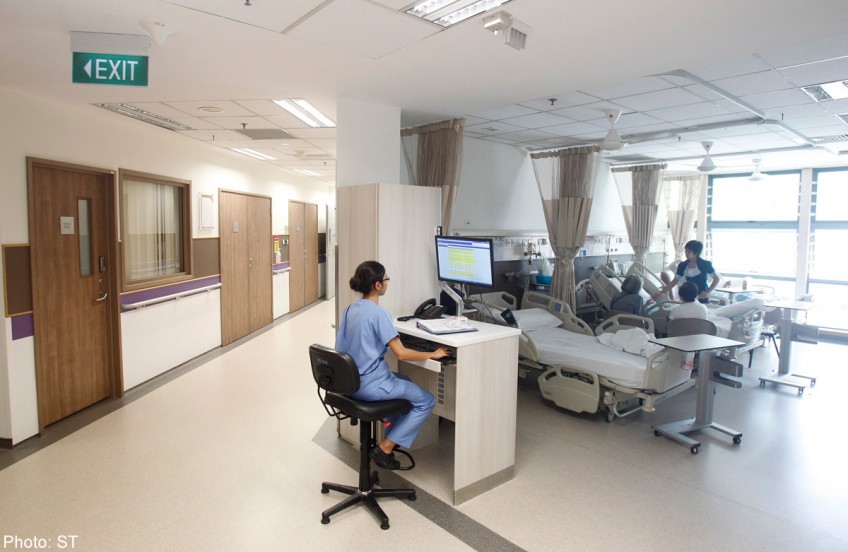More return to hospital within a month

SINGAPORE - More people are landing back in hospital within a month of being discharged, prompting hospitals here to ramp up care for patients in their homes and the community, so they can avoid such re-admissions.
According to the latest figures available, about 36,400 patients were re-admitted to a public hospital within 30 days of their discharge in 2013, up from about 31,400 in 2011.
One reason for this is that patients could not care for themselves properly at home.
So, five of the six public general hospitals here have started transitional care for patients with frequent admissions. This includes sending medical staff to patients' homes to ensure they take their medication properly and making sure that their homes are fitted with items such as grab bars to prevent falls. Currently, Alexandra Hospital is the only one without such a scheme.
Said a Ministry of Health (MOH) spokesman: "Such an approach ensures that these patients receive adequate support, and thus minimises the avoidable re-admissions."
According to MOH figures, only one in four patients returned to a hospital bed for the same medical condition within that one-month period. For the rest, their second stay was for another condition. Top reasons included diabetes with complications, heart failure, pneumonia, urinary tract infection and chronic pulmonary disease.
And such patients are not all elderly. More than half of those re-admitted were below 65 years of age. Among these younger patients, one in 11 returned to a hospital ward within a month.
With patients aged 65 years and older, almost one in five was re-admitted during that time. Seniors aged 65 years and older now make up a third of all admissions to public hospitals.
Nurses from Khoo Teck Puat Hospital found that some patients' frequent return to hospital was not related to their medical problem, but caused by other factors such as an environment that was unsuited to the elderly or frail. Homes with kerbs, steps or dim lighting could cause falls, for instance.
One of their patients, for example, had asthma, hypertension and heart disease, and had lost his right foot to uncontrolled diabetes. The man, who lived alone in a one-room rental flat, had been in and out of the hospital several times a year.
The team visited his home and found he had many medicines to take, but they were kept haphazardly so he ended up taking the wrong ones, in wrong doses or even missed out on some altogether. He was also lonely, had a poor diet and was at risk of falling.
They called on various help groups: The Thye Hua Kwan Moral Society packed his medication into daily doses; Sunlove Seniors Activity Centre delivered healthy food rations; NTUC Eldercare cleaned his home regularly and took him to medical appointments; and the Housing Board installed grab bars for him. The Agency for Integrated Care also installed a ramp outside his flat and gave him a motorised scooter so he could go out and socialise.
The result: He has not been admitted to hospital in more than a year.
Avoiding re-admissions not only saves precious bed space amid a crunch in hospitals, but it also helps keep medical costs down.
The health ministry spokesman said the MOH has given public hospitals more funding to develop new programmes extending care from the hospital to the community.
It hopes that this will help to shift the need for hospitalisation to more community and home- based care.
salma@sph.com.sg
Additional reporting by Kash Cheong

This article was first published on MONTH DAY, 2015.
Get a copy of The Straits Times or go to straitstimes.com for more stories.